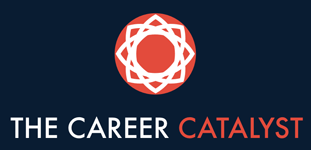
Thanks for coming back for this installment of my Interview Month posts! Today I’m going to give you a formula for answering interview questions.
It may seem crushingly obvious, but the first step to making sure you knock it out of the park in an interview is to listen to the question. It’s very frustrating for interviewers when you don’t answer fully, or when you answer the question you wish they had asked. For example, if they ask you to give an example of a time you did something, give a specific example, with a beginning, a middle, and an end, instead of just a general answer. Don’t talk in generalities. Instead, tell stories that highlight your interventions and actions.
Similarly, a fairly common problem is people misunderstanding the question. Instead of answering something you’re unclear about, please feel free to ask them to ask it again. You can also say something like, “I’m so sorry, I don’t quite understand what you’re asking. Can you explain a little more?” or to clarify after you answer: “Is that what you were asking?” If you have an auditory processing disability (or suspect you might), you can also ask in advance if there’s a printed or emailed copy of the questions you can get on the day of the interview.
Secondly, take time to formulate your answers before you dive in with an answer, especially if the questions is a harder one. If you’re being interviewed in-person, it’s a little easier to show that you’re thinking about an answer, but if you’re on the phone, I recommend you make some “thinking” sounds like hmmm or that’s a good question. If a question has a couple parts to it, you can also jot down some notes for yourself so you’re sure you remember what you want to say.
Third, try approaching questions using the STAR method:
Situation: Describe the where and in what context you performed a job or dealt with a challenge, like a conflict or a group project. Think about paid work, volunteer positions, school and life in general for your examples. Be as specific as possible.
Task: Next, describe your role and any details that are important. For example, you might have been tasked with hitting a sales goal or convincing an unhappy customer to return.
Action: Then describe what you did in order to resolve the situation. Remember to focus on what you did, rather than what your team, boss, or coworker did. You can mention the team’s focus, but avoid saying, “We did ____,” and instead say, “I did ___.”
Result: Last, wrap up your story by describing what happened because of the actions you took. If things ended well, talk about what you accomplished; if it all fell apart anyway, describe what you learned and how that’s played out since then.
To summarize: listen carefully, ask for clarification when you need it, be thoughtful, and give specific examples and outcomes. We’ll talk more about wacky or really tough questions next time, so be sure to tune in for that!



